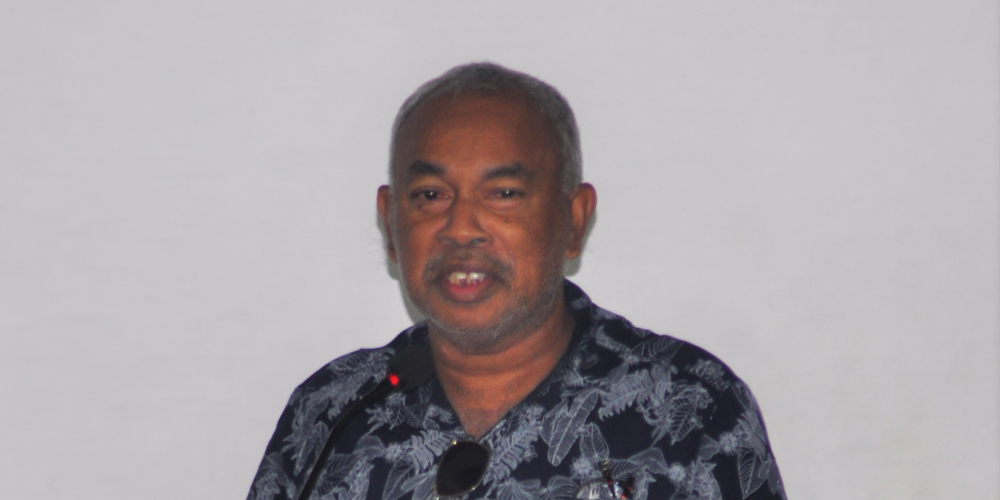Solomon Islands medical entomologist Dr. Hugo Bugoro has emphasized the vital role of traditional food preservation methods in ensuring food security for remote island communities such as Tikopia, especially during times of disaster.
Dr. Bugoro presented his research findings at the final conference of the Family Farming, Lifestyle, and Health (FALAH) project at the University of New Caledonia. He later re-presented them during a seminar hosted by the Solomon Islands National University (SINU) at the Ranadi Campus recently.
Although food preservation falls outside his core expertise, Dr. Bugoro’s work aligns with the broader FALAH focus, and his presentation drew interest from SINU students, staff, media, and the public. The seminar featured eight other presentations by SINU researchers and lecturers.
His study, titled “Enhancing Food Security in Small Islands of the Solomon Islands: The Role of Traditional Food Preservation Methods,” highlights how age-old techniques remain essential in remote areas where modern storage options like refrigeration are unavailable or unreliable.
“In places like Tikopia, fruit trees are abundant, but cyclones can destroy them. Since food aid may take weeks to arrive after a disaster, traditional preservation methods become a lifeline,” Dr. Bugoro explained.
As an island nation, Solomon Islands faces unique logistical and environmental challenges. Many outer islands lack access to electricity or modern infrastructure, making food preservation crucial to survival during crises. Dr. Bugoro identified three traditional methods still in use:
- Drying – Sun-dried fish and produce, especially common in Santa Cruz and Temotu.
- Smoking – Used to preserve fish and other perishables.
- Fermentation – Techniques like masi, where cassava is stored in underground pits.
Dr. Bugoro also outlined several factors that threaten food security:
- Geographical isolation – Limited access to markets and emergency services.
- Resource constraints – Absence of modern preservation tools like refrigeration.
- Climate change – Increased frequency of cyclones and rising temperatures disrupt food production and storage.
He also identified challenges in preserving these traditional practices:
- Knowledge loss – Younger generations are increasingly drawn to modern lifestyles and processed foods.
- Climate impacts – Environmental changes are reducing the effectiveness of traditional preservation methods.
- Market influence – Imported processed foods often overshadow local food systems.
To counter these threats, Dr. Bugoro proposed a series of recommendations:
- Cultural education programs – Introduce traditional food knowledge into school curricula.
- Intergenerational learning – Encourage knowledge transfer from elders to youth.
- Hybrid approaches – Blend traditional methods with modern techniques to build resilience.
Dr. Bugoro’s research highlights that food preservation is not just a cultural heritage practice—it’s a vital survival tool. Safeguarding and adapting these methods is key to ensuring food security for the most vulnerable communities across the Solomon Islands.
By LACHLAN SHYVES EDDIE
Solomon Star, Honiara









